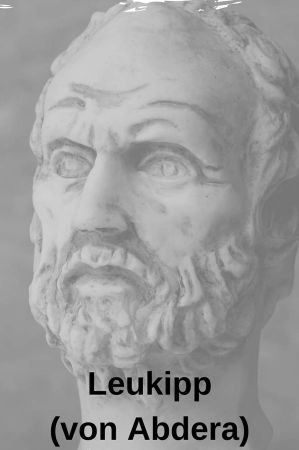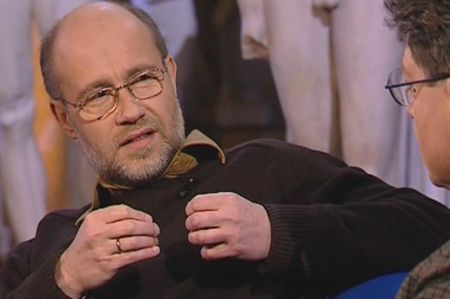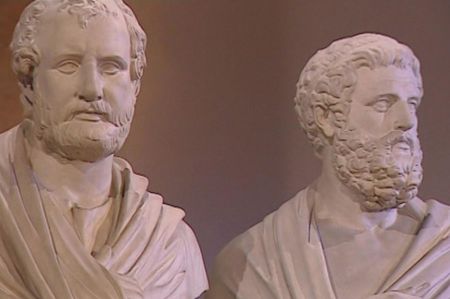Leucippus - philosopher and founder of atomism
- Written by Portal Editor
In the 5th century BC, more precise data about the Greek philosopher are unfortunately not available, Leucippus was born in Abdera or in Miletus.
His instructors include Parmenides, who argued with his Parmenidean teachings in stark contrast to the ideas of Leucippus, who claimed that the world consists of empty space and matter. But as can often be noticed in our modern age, teachers and students are always in opposition to the other, simply because of their respective position.
Nothing is created without a plan
In his theses, Leucippus took the view that everything material would be composed of many infinitely small components and that growth and decay could be explained by rearranging the small components. As early as 2,500 years ago, the pure theoretician Leucippus recognized very well that all matter must consist of the smallest parts, namely the atoms or “atomoi”. For Leucippus it was essential that matter could never move without empty space. Only when the smallest atoms are rearranged does change occur.
Another causal sentence of Leucippus is: "Nothing is created without a plan, but out of meaning and necessity".
Matter made up of indivisible basic building blocks
 Leucippus abdera quotes Leucippus and his student, Democritus, who was also born in Abdera, worked together on these theses and were able to work out these teachings on materialism. Both Leucippus and his student Democritus are regarded as the founders of atomism. Which parts are due to Democritus and which to Leucippus has not been scientifically proven to this day, since many text fragments have not been preserved, especially in Democritus's notes. There are even historians who claim that Leucippus never existed and that Democritus only used the name Leucippus as a pseudonym to publish his own theories. In today's science, however, this view finds little support.
Leucippus abdera quotes Leucippus and his student, Democritus, who was also born in Abdera, worked together on these theses and were able to work out these teachings on materialism. Both Leucippus and his student Democritus are regarded as the founders of atomism. Which parts are due to Democritus and which to Leucippus has not been scientifically proven to this day, since many text fragments have not been preserved, especially in Democritus's notes. There are even historians who claim that Leucippus never existed and that Democritus only used the name Leucippus as a pseudonym to publish his own theories. In today's science, however, this view finds little support.
According to the theories of Leucippus and Democritus, atoms are indivisible and already have the properties of the matter that is made up of them. According to their theory, smooth objects are made up of round atoms, while rough surfaces are probably made up of angular atoms. At this point, no further approach could be continued without real research. However, it was amazing that Leucippus and Democritus were able to set up the theory that matter could be made up of indivisible basic building blocks. It took another 2,000 years to continue these theories to the periodic table, which is the amazing thing.
According to the current state of knowledge, still considered indivisible
 leucippus abdera discussion 1As early as ancient times, Leucippus and Democritus could imagine the world of atoms as a "big world". A central point of their atomism was the existence of empty space, a vacuum in which atoms could move. In contrast, the idea that the world could be made up of combinations of just a few elements was no longer new. This theory can already be found in the notes of Thales of Miletus under the title "Everything is water".
leucippus abdera discussion 1As early as ancient times, Leucippus and Democritus could imagine the world of atoms as a "big world". A central point of their atomism was the existence of empty space, a vacuum in which atoms could move. In contrast, the idea that the world could be made up of combinations of just a few elements was no longer new. This theory can already be found in the notes of Thales of Miletus under the title "Everything is water".
Leucippus is also considered the author of "The Great World System" and "On the Spirit".
The theories of Leucippus and Democritus were later taken up by the Epicurean school, while other philosophers such as Plato and Aristotle consistently rejected the theory of atomism. Plato and Aristotle could not do anything with the theory of "non-existent", i.e. empty space. Simply, they thought the vacuum was unimaginable.
In today's modern physics, it is more the elementary particles that correspond to the theories of Leucippus and Democritus. Although the elementary particles do not behave according to the classic rules of macroscopic physics, according to the current state of knowledge they are still considered indivisible.
Please read as well:
Shoemaker stick to your last - Apelles
Balaton - Lake Balcsi - not just an intermediate destination
